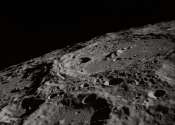NASA's Mars rover two weeks from landing
(Phys.org) -- NASA's most advanced planetary rover is on a precise course for an early August landing beside a Martian mountain to begin two years of unprecedented scientific detective work. However, getting the Curiosity ...









